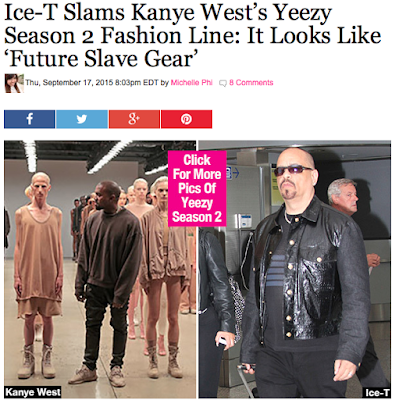Two figures, both religious ministers, dominated the civil rights movement of the 1950s and 1960s: Rev. Martin Luther King and (Minister) Malcolm X. They had very different views on how to achieve their goals.
King believed in peaceful protest, such as the huge (200,000!) march on Washington in 1963 where he delivered his 'I have a dream...' speech, and civil disobedience, refusing to obey the segregation in place.
Malcolm X felt this wasn't enough; he called for 'black power' ... "by any means necessary", including violence.
read more:
COMPARISON OF MARTIN AND MALCOLM
BBC: THE CIVIL RIGHTS MOVEMENT
BBC: MALCOLM X AND BLACK POWER
GOOGLE RESULTS ON MALCOLM X AND COMPARISON WITH KING
VIDEO COMPARING KING AND X
Slavery has been abolished...
They say slavery has been abolished except for the convicted felonY'all need to think about that- Ice-T Ya Shoulda Killed Me Last Year (from O.G. Original Gangster, 1991)
 |
| The historic issues of slavery and civil rights for African-Americans continue to be viewed as contemporary open issues by some in America |
Fight the Power (play only until 4mins; strong language follows) is a strong example of the direct link to, and often critique of, the civil rights movement with modern conditions.
A feminist might note that, notwithstanding Rosa Parks, this is an historic issue largely viewed through the actions and speech of men - and to some extent continues to be today.
Two men defined very different approaches to the issue: Malcolm X (radical convert to Islam and figurehead of the Nation of Islam and the Black Power movement, which also spawned the Black Panther Party) and Rev. Martin Luther King (Christian minister who preached a non-violent form of protest, and has eventually received mainstream recognition as a key figure in American history).
As you create your account of the Civil Rights movement in 1950s/60s America you need to come to some judgement on these two central figures. You also need to reflect on and include:
- the source for ANY/ALL information you find
- make it clear when you're quoting
- a brief summary of sources: did you find any you didn't think you can trust as accurate? why? a good historian pays close attention to sources (was the Bayeau Tapestry fair and accurate?!)
- what were the causes of the civil rights movement - you need to include slavery, the economic growth of the US in the 1940s/50s, constitutional issues and the right to vote, Jim Crow Laws, the continuing North-South divide on race, segregation...
- what were the key events and people who sparked the movement (court cases and rulings, Rosa Parks, Malcolm/Martin, Black Panthers, Olympics and black power salute, Mohammed Ali, global atmosphere of revolution and rebellion in the 1960s - were there comparable movements in France, Britain etc? ...)
- what were the strategies used by the movement?
- what are the theories around Malcolm/Martin's deaths?
- why is there no Malcolm X Day?
- do many of the sources you accessed make much reference to Malcolm X, or does King dominate
- what were the outcomes of the movement?
- in your view, using quotes to support your argument, did the movement succeed? Are there any signs from presidential elections (current and recent) or wider issues around policing that might suggest not? Has segregation ended; has bussing succeeded?
- you could attempt to make contact with African-American schoolchildren of your age for more views
- be careful with how you use terms to describe race and ethnicity
There are MANY short and feature-length documentaries viewable through YouTube - this search will help you find some.
This example focuses on the STILL controversial issue of schooling...
...
Here we get a student-made overview of the JIM CROW LAWS...
...
Here's a flavour of Malcolm X's radical views... You'll find many more in the sidebar here.
...
Contrast with this Martin Luther King interview (find more here)...
...
No comments:
Post a Comment